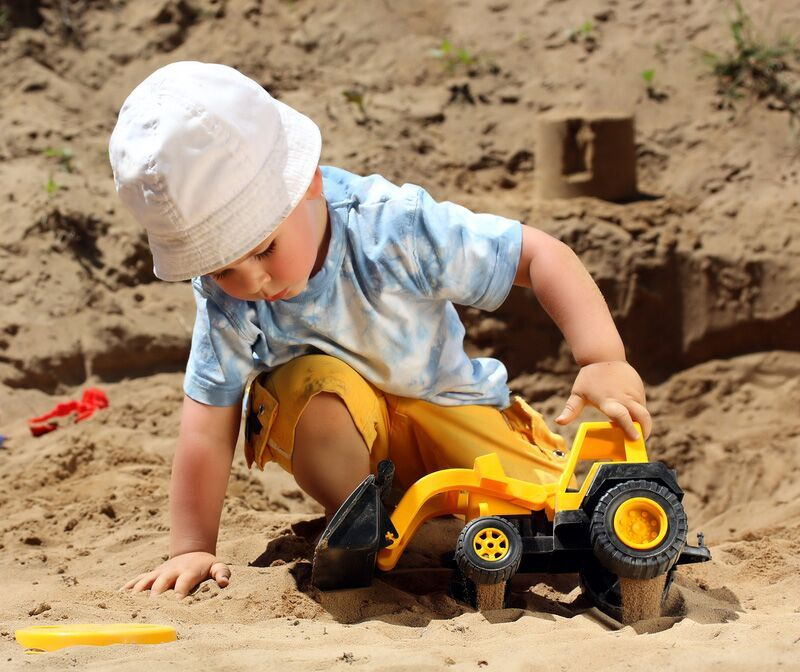
How Play Time Can Develop Your Child's Brain by Jackie Edwards
Children don’t see the world in the same way adults do, and realizing this can make you help their brains develop better. Research published in the National Academics Press found that children register events around them when they affect or appeal to their senses. By stimulating their senses, you can therefore help your children develop healthily. How can you do this? Through play and with sensory toys!
What Happens When Children Play
Playtime is not just time for kids to have fun. It can help them to develop healthy brains. Research published on NPR, a multimedia news organization and radio program producer website, has found that playtime actually changes the connections of neurons in the front of children's brains. This has many positive effects on children's development, such as helping them regulate emotions and solve problems, two skills that will benefit them throughout their lives.
How To Encourage Positive Play
When your child is still very young, you can help them to engage in playtime that positively impacts their development. The key is to choose playtime ideas and toys that appeal to their five senses.

1. Read To Them
When you start reading to children when they're babies, they learn language skills and new vocabulary. Choose books that are brightly colored and have lots of pictures so that you'll be stimulating their senses of hearing and sight in one activity.
Research published on CNN has found that when children between the ages of three and five underwent MRI brain scans while listening to a recorded story, parts of their brain involved with understanding words and concepts, as well as memory, lit up. Some of our favorite memories are often linked to our senses, which just shows the value of sensory experiences in young children. A creative idea is to make story time even more fun by giving your children sensory toys to play with while you read to them, such as choosing teddy bears or action fictures to represent characters in the story that they can move around.

2. Let Them Get Their Hands Dirty
Let children touch things like play dough or moon sand that can be sculpted into a variety of different objects to stimulate their creativity and imagination. Other fun "touch-based" activities include making puzzles, cutting shapes out of paper, and using crayons to draw. These promote your child's fine motor skills, such as the coordination of muscles in their hands and fingers. Therapy sand is also a great idea for kids to play with. You can get it in a variety of bright colors and it helps your children to express their feelings by playing with the sand. It also feels different from sand outside, so they'll get a different experience from playing with it.

3. Turn Playtime Into Eating Time
Ever noticed how children love to put everything in their mouths? It's a way for them to explore their environment. Give them different foods to smell and taste, or let them play with edible play dough that is fun to work with and can be eaten too. When you let children exercise their taste buds, this makes them decide what foods they like or don't like. It can also help them make healthy food choices. According to a book called First Bite by food writer Bee Wilson, when you let your baby taste different foods from an early age, you encourage them to be healthier because you can introduce them to nutritious foods that they'll learn to enjoy. This will shape their dietary preferences in adulthood, helping them choose a healthy lifestyle that will boost their wellbeing.
You can use eating time as a way to teach kids about the importance of eating healthy. Fill their dollhouses with healthy food sets, or let them play with a variety of toy cooking utensils and tools so that they'll enjoy learning about healthy lifestyles.
Introducing sensory play into your child's playtime sessions can make a big difference in how they develop. Appealing to their five senses will introduce new connections in their brain, while helping them develop a variety of skills that will enable them to grow into healthy, all-rounded individuals.
***
Thanks to Jackie for this great submission!
After taking a career sabbatical to become a mother, Jackie now writes full time on topics ranging from health and wellness, right through to news and current affairs. She has, in the past battled problems with anxiety and panic, and in her spare time she volunteers for a number of local charities that support people with mental health issues. Contact Jackie here!

Leave a comment